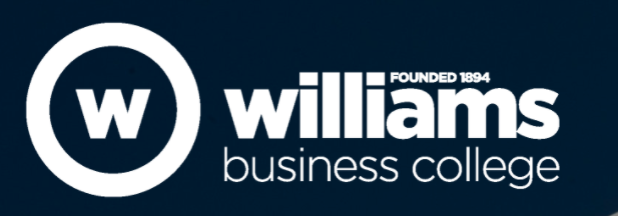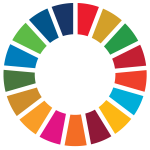United Nations Diploma
Description
Institution
Williams Business College

Organizations/areas of the university involved
Williams Business College and The United Nations Association of Australia
Country
australia
Link to learn more...
Through a strategic partnership with the United Nations Association of Australia, this pioneering competency-based UN Diploma is raising awareness of the SDGs and creating more committed and informed global citizens.
Launched in June 2019, the United Nations (UN) Diploma is an initiative of Williams Business College and the United Nations Association of Australia (NSW Division). Its aim is to accelerate and mainstream understanding of the SDGs and enable students to “acquire the knowledge and skills needed to promote sustainable development,” as set out in SDG target 4.7.
Delivered over 19 weeks through a combination of two-hour lectures and group work, the course covers eight subjects including the history and structure of the UN, the role of peacekeeping and key human rights instruments and standards, as well as the evolution, objectives and implementation of the SDGs. It enables participants to build knowledge of the 2030 Agenda and the UN’s role in meeting global challenges. Beyond education for the SDGs, the course provides valuable upskilling for individuals with an interest in the international rules-based order or seeking employment within the UN and related institutions.
Teaching is delivered by professional educators and practitioners. Subject matter experts are invited to lecture on relevant units including, for example, an SDG consultant, a former UN Assistant Secretary-General, and a former Chief Military Advisor of UN Peacekeeping – a feature highly valued by students: “hearing from UN experts first -hand was a fascinating experience. ”
As well as enhancing students’ holistic understanding of the SDGs (SDG 4.7), the Diploma contributes to SDG 4.4 by imparting“ relevant skills, including technical, tertiary and vocational skills for employment, decent jobs and entrepreneurship ”through nationally accredited Competency Based Training in eg project management (BSBPMG522) and making a presentation (BSBCMM401), giving students a competitive edge that “can be applied across many professions.”Building on the Diploma’s early success, UNAA (NSW) intends to partner more broadly with universities and higher education institutions to scale the concept via a UN Center for Education in NSW, in line with its mandate to “inform, inspire and engage Australians to create a safer, fairer, more sustainable world. ” This is achieved when, in the words of one student:” I loved your examples of how others are implementing the SDGs. You’ve inspired me to do the same at work! “
Results and impact measured or expected
Since its launch in June 2019, 118 students have enrolled in the UN Diploma. An upside of moving online in 2020 was achieving significantly wider geographical reach, with the second student cohort spread across various Australian states and territories, including overseas. Taking part in the course has significantly enhanced student awareness of global goals and challenges, building their confidence and competence to apply the SDGs following their studies, as one student said: “I will look at incorporating the SDGs in my current work and potentially include in policy development.” Evaluation surveys completed at the end of the course confirm that, across all subjects taught on the UN, including the SDGs, over 89% of students who responded from the June 2020 cohort were either ‘satisfied’ or ‘very satisfied.’ All student feedback is used to inform and improve subsequent rollouts of the course.
Connection with the SDG framework
Through its focus on empowering global citizens, the UN Diploma is strongly aligned with the 2030 Agenda. The SDGs form a standalone subject unit in Week 2, during which students learn about how the global goals evolved, what they are trying to achieve, the roles of different stakeholders and what good practice looks like. This knowledge is built on in later weeks when, as part of their nationally accredited competency in project management, students make a presentation on one or more of the SDGs. More broadly, all subject units within the Diploma contribute towards expanding society’s capacity to solve complex challenges across all 17 goals, including SDG 16: Peace, Justice and Strong Institutions and SDG 17: Partnerships for the Goals. Involvement of practitioners in the course helps to ensure that learnings can be immediately applied by the students in their work or studies.
Barriers and follow up
Covering the work of the UN and the 2030 Agenda comprehensively and fulfilling expectations of varied students in a short course is challenging, but this is addressed by providing students with additional reading and relevant resources for those who wish to deepen their knowledge further. Pivoting to online delivery in 2020 made the Diploma more accessible—in the spirit of inclusive and equitable quality education—but the transition was not without challenges. Google Classroom was used to manage information exchanges, but some students found it difficult to navigate, particularly when uploading assessments. This was overcome by recruiting a volunteer administrator to help troubleshoot technical difficulties and provide a point of contact for students. Recruiting student intake for each cohort has been supported by an active social media campaign and outreach to potential future students has become easier as word of mouth about the Diploma spreads.
Transferability of the initiative
The UN Diploma is a highly scalable concept that can be replicated by Higher Education Institutions across Australia and around the world, in partnership with local United Nations Associations. The Diploma adopts a global perspective and all subjects are relevant to individuals in any country, making it transferable across different geographical and cultural contexts. Offering the course online means its geographical reach can also be extended. In keeping with the rise of interest in micro-credentials, the initiative offers a quick, accessible and affordable way for students to update their real-world skills while learning about the important role of the UN and the 2030 Agenda first-hand from experts and former UN staff. Through the establishment of a UN Centre for Education, the aim is to partner with more institutions and reach more students, raising broader awareness of the SDGs in the community. UNAA NSW welcomes inquiries from interested institutions.
Education 4 SDG funciona gracias a WordPress

